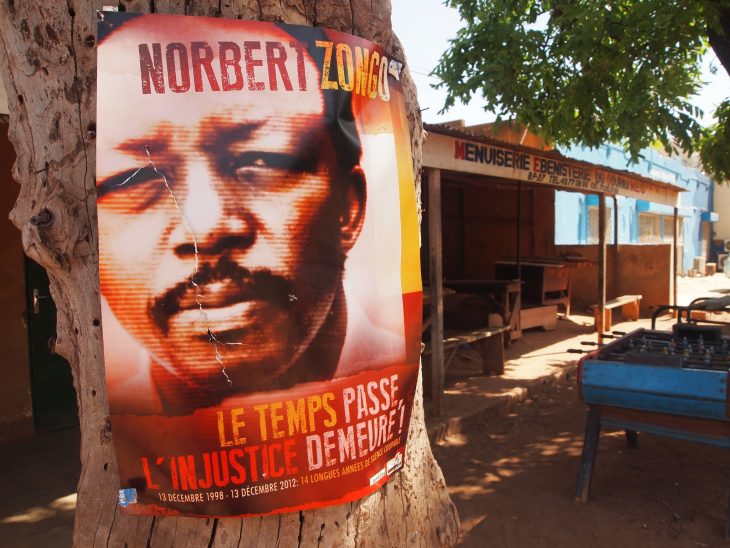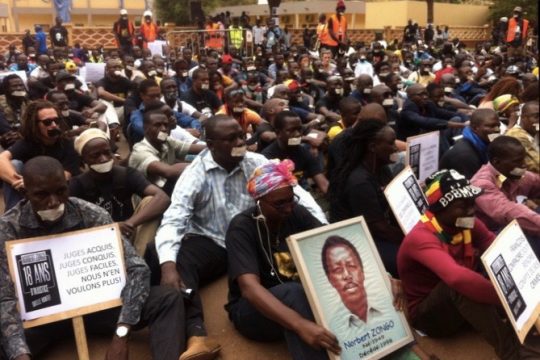Reporters Without Borders (RSF) on Monday hailed as “historic” an African Court on Human and People’s Rights (ACHPR) order that Burkina Faso must reopen investigations into the 1998 murder of journalist Norbert Zongo and three of his companions.
In its June 5 decision the Court, based in the northern Tanzanian town of Arusha, also ordered Ouagadougou to pay financial compensation of 25 million CFA francs (about 38,000 Euros) to each of their spouses, 15 million to each of their children and 10 million to each of the parents of Zongo and his companions.
Zongo, the founder and director of weekly independent publication L'Indépendant, was assassinated as he was investigating the alleged involvement of François Compaoré, brother of the president at the time, in the 2000 death in custody of his driver. The case was dismissed in 2006, in a decision that brought outcry from civil society and human rights activists.
The African Court’s judgment “constitutes a major turning-point in the Zongo case, which has suffered appallingly from the impunity tolerated for all these years by Burkina Faso’s justice system,” said Cléa Kahn-Sriber, head of the Reporters Without Borders Africa desk.
“This puts additional pressure on the authorities to keep the promises of justice initially given at the time of the November 2014 political transition,” she said. The promises came after a popular uprising that forced President Blaise Compaoré out of power.
Reporters Without Borders considers that “the reparations demanded for the families of the victims are an acknowledgment of the suffering they endured” and hopes that “the authorities will seize this opportunity to redress an injustice that has lasted for too long”.
One symbolic franc
According to Radio-France Internationale (RFI), Burkina Faso Justice Minister Joséphine Ouédraogo said Sunday that the case had already been reopened at the request of the families and government, and that the investigation was under way. “I think it’s normal that the African Court is currently concerned about the situation, but in fact the case has been reopened since January,” she said. “Investigations are ongoing, and now the other aspect is reparations to be paid to the family. The State has obviously taken note of this decision and we will examine how to proceed.”
The ACHPR decision was also hailed by the Burkina Faso Movement for Human and People’s Rights (MBDHP) which has been fighting alongside the families since 1998 to have light shed on these assassinations. “In addition to the financial reparations that we asked for, we are particularly pleased that the Court’s decision orders the State of Burkina Faso to resume the investigations so as to find and bring to justice those responsible,” head of the movement Chrysogone Zougmoré told RFI.
This organization, which is a civil party in the case, was awarded a symbolic franc by the African Court.
The government of Burkina Faso has six months from the date of the judgment to submit to the Court a report on how its decision is being implemented.
When Blaise Compaoré was forced from power last November, transitional president Michel Kafando promised to fight impunity, raising hopes that the case would soon be reopened.
Burkina Faso is 46th out of 180 countries in RSF’s 2015 press freedom rankings.
The new authorities in Burkina Faso also promised to exhume the remains of Thomas Sankara and his 12 companions assassinated in October 1987 during the coup d’Etat that brought Blaisé Compaoré to power.
Sankara’s remains were exhumed on May 26, representing a new step in investigations into his murder.







